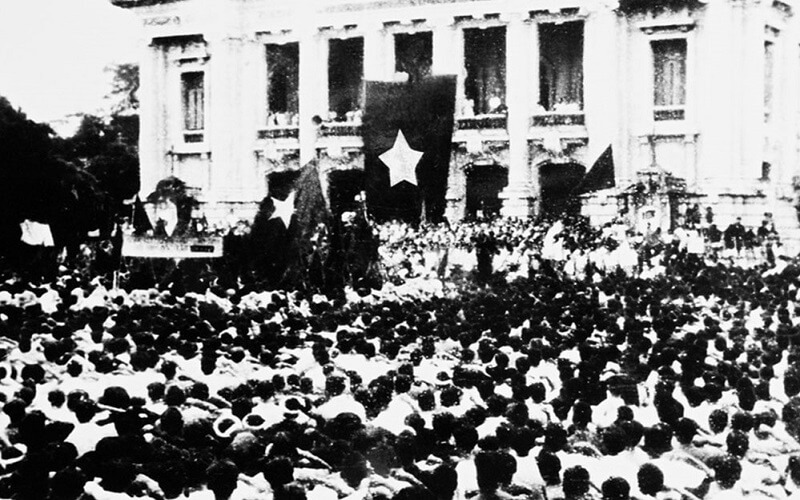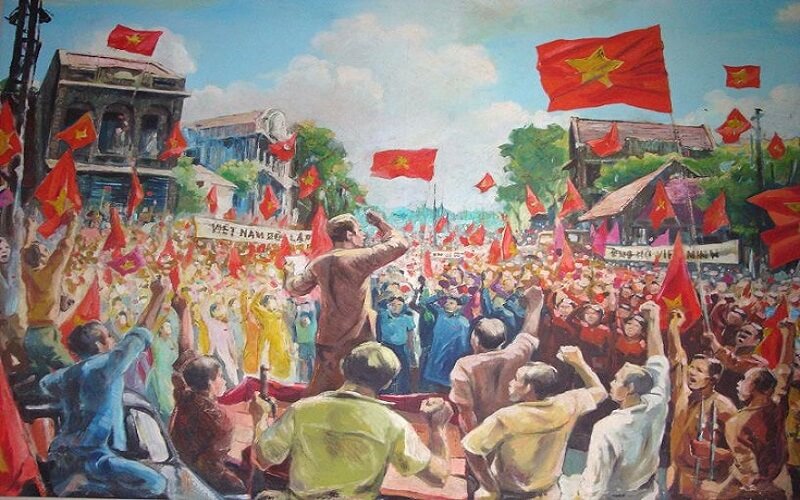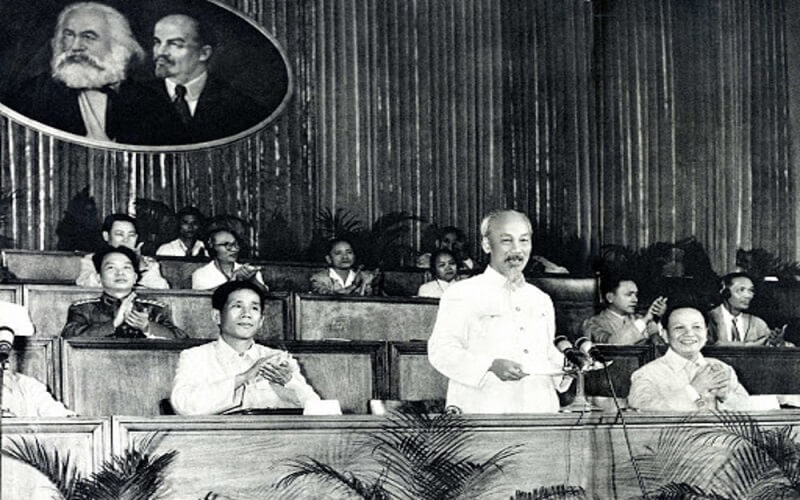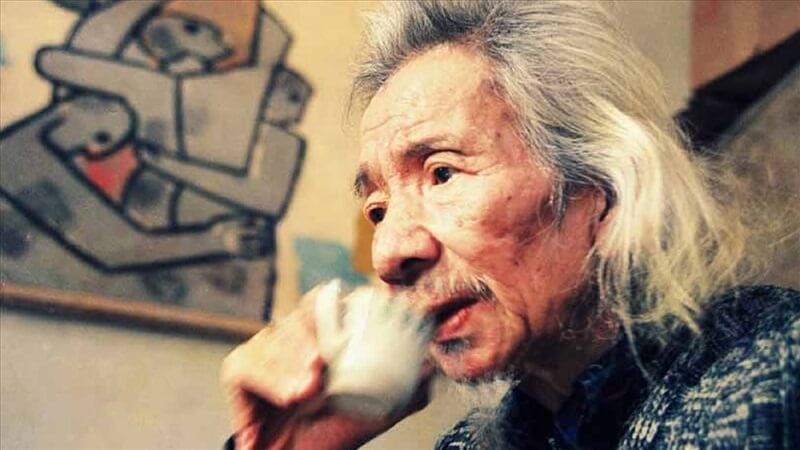August Revolution Day is a significant national commemorative holiday, a day to honor and remember the liberation and nation-building efforts of the Vietnamese people. Let’s explore and learn more about this important day in Vietnam’s history.
1. Understanding the August Revolution – 19th August
Origins of the August Revolution
As World War II neared its end with the Soviet Union’s victory over Nazi Germany in early 1945, followed by Germany’s unconditional surrender, the war in Europe came to a close. On May 9, 1945, Japan, the other major Axis power, surrendered, bringing World War II to an end globally.
In Vietnam, the Japanese colonial rulers overthrew the French in a coup on March 9, 1945. Seizing the opportunity for an uprising, the Viet Minh Headquarters issued directives to establish People’s Liberation Committees at various levels and prepare for the formation of the National Liberation Committee of Vietnam, also known as the Provisional Revolutionary Government of Vietnam, on April 16, 1945.
For further reference: 10 Interesting Facts About Vietnam
 On August 16, 1945, President Ho Chi Minh sent a letter calling for a general uprising of the people
On August 16, 1945, President Ho Chi Minh sent a letter calling for a general uprising of the people
In early May 1945, Uncle Ho returned to Tan Trao, Tuyen Quang, from Cao Bang, choosing it as the base to direct the revolution across the country and prepare for a National Congress. At 11 p.m. on August 13, 1945, the Uprising Committee issued Military Order No. 1, calling for a general uprising.
On August 16, 1945, President Ho Chi Minh sent a letter appealing to the entire population to rise up, stating, “The hour of decision for our nation’s destiny has arrived. All people of Vietnam, let us rise up with our own strength to liberate ourselves.”
Thanks to the leadership of the Communist Party of Vietnam and President Ho Chi Minh, the people of Vietnam rose up in a general uprising, seizing power:
 The general uprising achieved complete victory within 15 days
The general uprising achieved complete victory within 15 days
- From August 14 to August 18, 1945, the general uprising erupted and succeeded in Bac Giang, Hai Duong, Ha Tinh, Hoi An, and Quang Nam.
- On August 19, 1945, the uprising prevailed in Hanoi, with the people seizing power.
- On August 23, 1945, the uprising was victorious in Hue, Bac Kan, Hoa Binh, Haiphong, Ha Dong, Quang Binh, Quang Tri, Binh Dinh, Gia Lai, and Bac Lieu.
- On August 25, 2022, the uprising succeeded in Saigon-Gia Dinh, Kon Tum, Soc Trang, Vinh Long, Tra Vinh, Bien Hoa, Tay Ninh, and Ben Tre.
- In Con Dao, the Party Committee of Con Dao Prison led imprisoned revolutionaries in an uprising to seize control of the prison.
Within just 15 days, the general uprising achieved complete victory, and the people held power throughout the country.
Historical Significance of the August Revolution
/1945 marked the success of the Vietnamese revolution, freeing the country from nearly a century of French colonial rule, abolishing the feudal system, and establishing the Democratic Republic of Vietnam. Additionally, the success of the August Revolution in 1945 affirmed the leadership of the Communist Party of Vietnam in the national liberation movement.
 August 19, 1945, marked the triumph of the Vietnamese revolution
August 19, 1945, marked the triumph of the Vietnamese revolution
This day also honors and remembers the sacrifices and contributions of the people’s police force, which played a pivotal role in maintaining social order and security during the wars and was at the forefront of defending the nation.
For further exploration: Historical Significance of the August Revolution
2. Commemorative Activities for the August Revolution Success
On the occasion of the August Revolution anniversary, each province and city across the country organizes various activities, including:
 Cultural and artistic performances are held to commemorate the anniversary on August 19
Cultural and artistic performances are held to commemorate the anniversary on August 19
- Cultural and artistic events to honor the contributions of our forefathers and soldiers in nation-building.
- Organizing rallies and decorating streets with banners, posters, and propaganda paintings in the city’s main centers.
- Producing special reports, articles, and television and radio programs to commemorate the 77th anniversary of the August Revolution and the National Day of the Socialist Republic of Vietnam.
3. Unforgettable Songs About the August Revolution
 The National Anthem, “Tien Quan Ca,” composed by the late musician Van Cao
The National Anthem, “Tien Quan Ca,” composed by the late musician Van Cao
- “August 19” by musician Xuan Oanh, performed by a choir
- “Tien Quan Ca” (The Marching Song) by musician Van Cao, performed by a choir
- “Len Dang” (Onwards) by musician Luu Huu Phuc, performed by a choir
- “Tieng Goi Thanh Nien” (Call of the Youth) by musician Luu Huu Phuc, performed by a choir
- “Cung Nhau Di Hong Binh” (Let’s Go, Red Soldiers) by musician Hoang Van, performed by a choir
- “Diet Phat Xit” (Destroy the Fascists) by musician Nguyen Dinh Thi, performed by Hoang Anh
- “Mua Xuan Tren Thanh Pho Ho Chi Minh” (Spring in Ho Chi Minh City) by musician Xuan Hong, performed by Dam Vinh Hung
- “Tien Ve Sai Gon” (March to Saigon) by musician Luu Huu Phuc, performed by the Nam Viet Group
The above information provides a glimpse into the significance of the August Revolution, and we hope it has enriched your understanding of this pivotal event in Vietnam’s history.
Examining the Long-Term Impact of the 7th May 1954 Dien Bien Phu Victory
As we mark the 66th anniversary of the victorious battle at Dien Bien Phu on May 7, 1954, it is important to reflect on the monumental impact this event had on the world. Let us take a closer look into the historic significance of this momentous occasion in the Vietnamese people’s struggle for independence.
Exploring the History, Significance, and Traditions of Border Guard Forces on Traditional Day 3/3
Today, we observe the 64th anniversary of the Vietnam Border Defense Force, a force which has served its country since 1959 to 2023. Dedicated to preserving the security and integrity of Vietnam, the Border Defense Force is honored for their unwavering commitment to their people and country. We take this day as an opportunity to recognize and pay tribute to the invaluable service of this important organization. Learn more about its significance here.





































